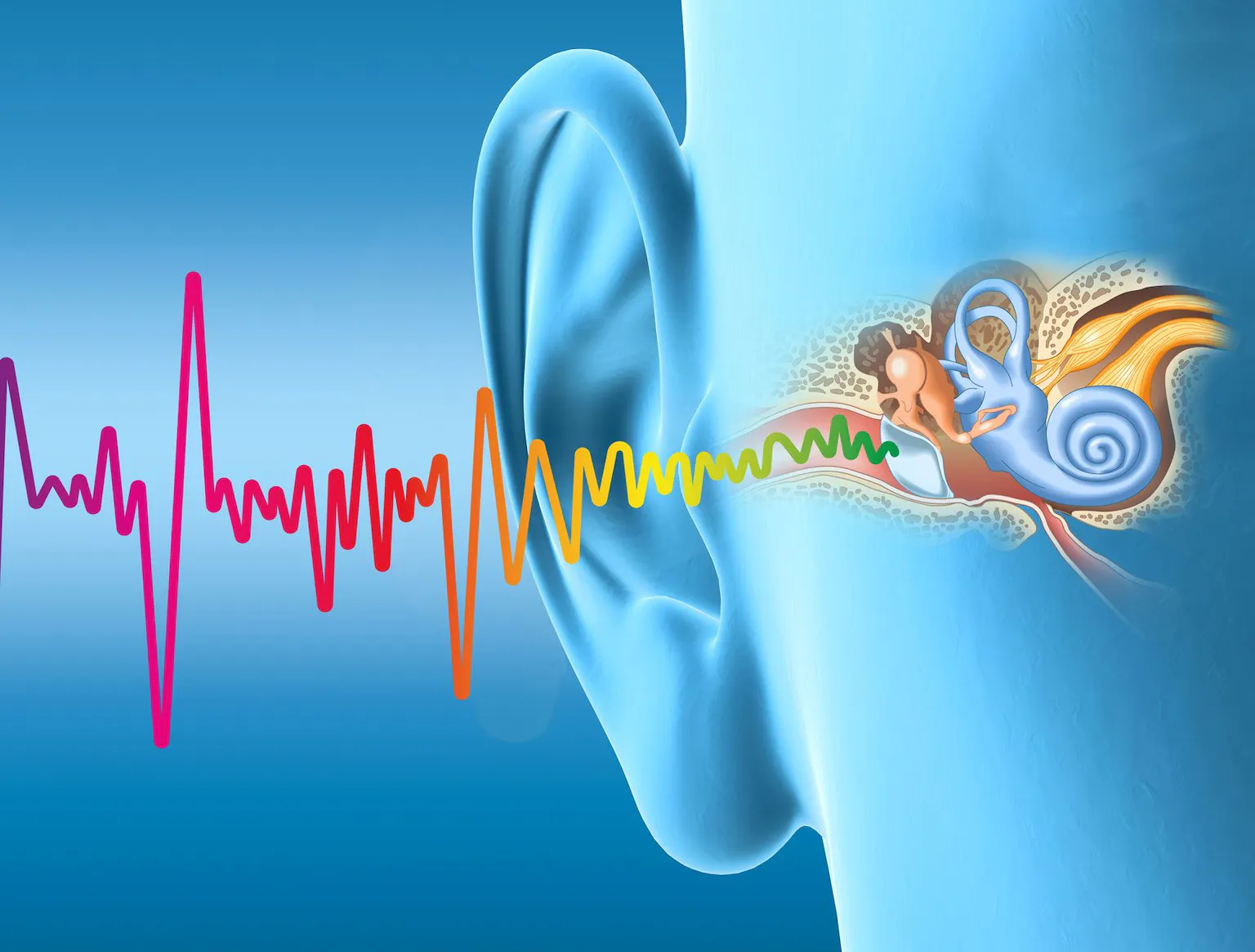Home for the Holidays
an Opportune Time for Candid Conversations about Hearing Loss
The holidays are upon us.
Soon many of you will be heading home for the holidays to spend quality time with close family and friends. It’s a time for festivities, fabulous food and fun. It may also serve as an opportune time to chat with loved ones whom you may have noticed are having some challenges hearing conversations or who may be steadily increasing the volume as they watch their favorite television shows.
There are numerous reasons to take action now if you haven’t yet talked to your mom or dad or a grandparent about potential hearing loss. Lucid Hearing’s Territory Vice President Jenifer Stoltz notes that because hearing loss happens over time, it’s easy for some people to underestimate their need for help.
“I think with people who have hearing loss, it happens gradually over time, and as humans, we just start to adapt,” Stoltz says. “We start to figure out, well I’m going to turn the TV up louder, I’m going to look at this person’s lips while they’re speaking, I’m going to use closed captioning, or I’m going to look to my partner when I don’t understand something, so essentially somebody else becomes the ‘hearing aid’ and they don’t realize how much it’s impacting them.”
Here we attempt to offer information to help you better understand hearing loss and its impact and provide suggestions for what might be a sensitive conversation, especially if you know your loved one perceives there’s a stigma with wearing a hearing aid (getting older, self-conscious about needing help), or is concerned about cost.


Breaking Down the Types of Hearing Loss and Causes
Sensorineural Hearing Loss
There’s a growing body of evidence that suggests that if you had COVID-19, you have a risk of developing sudden sensorineural hearing loss (SSNHL). According to the National Institute on Deafness and Other Communication Disorders, sudden sensorineural (“inner ear”) hearing loss, commonly known as sudden deafness, is an unexplained, rapid loss of hearing either all at once or over several days. Soft sounds may be hard to hear. Even louder sounds may be unclear or may sound muffled. A new study from MIT and Massachusetts Eye and Ear offers evidence that the COVID-19 virus can infect cells of the inner ear, including hair cells, which are critical for both hearing and balance. Additionally, several drugs currently (and previously) used to treat patients with COVID-19 — including remdesivir, as well as chloroquine and hydroxychloroquine — are ototoxic, meaning they can cause damage to the ear.
Other causes of sensorineural hearing loss can include:
- Illnesses
- Drugs that are toxic to hearing
- Hearing loss that runs in the family
- Aging
- Head trauma or injury
- A problem in the way the inner ear is formed
- Listening to loud noises or explosions
Conductive Hearing Loss
Conductive hearing loss happens when sounds cannot get through the outer or middle ear. It may be hard to hear soft sounds. Louder sounds may be muffled. Some may go away on their own, while others can cause permanent damage and require surgery to improve.
This type of hearing loss can be caused by the following:
- Fluid in your middle ear from colds or allergies
- Ear infection, or otitis media. Otitis is a term used to mean ear infection, and media means middle.
- Poor Eustachian tube function – The Eustachian tube connects your middle ear and your nose Fluid in the middle ear can drain out through this tube. Fluid can stay in the middle ear if the tube does not work correctly.
- A hole in your eardrum
- Benign tumors – These tumors are not cancer but can block the outer or middle ear.
- Earwax, or cerumen, stuck in your ear canal
- Infection in the ear canal, called external otitis. You may hear this called swimmer’s ear.
- An object stuck in your outer ear. An example might be if your child put a pebble in his ear when playing outside.
- A problem with how the outer or middle ear is formed. Some people are born without an outer ear. Some may have a deformed ear canal or have a problem with the bones in their middle ear.
Mixed Hearing Loss
Sometimes, a conductive hearing loss happens at the same time as a sensorineural hearing loss, or SNHL. This means that there may be damage in the outer or middle ear and in the inner ear or nerve pathway to the brain. This is a mixed hearing loss.
Anything that causes a conductive hearing loss or SNHL can lead to a mixed hearing loss. An example would be if you have a hearing loss because you work around loud noises and you have fluid in your middle ear. The two together might make your hearing worse than it would be with only one problem.
Why It’s Important to Take Action
Losing “speech understanding” or having difficulty clearly following someone’s speech is usually a result of hearing loss. People with hearing loss sometimes complain that others “are mumbling,” or they have difficulty hearing clearly the words spoken by women or children (who typically speak in softer tones). This is usually associated with sensorineural hearing (high frequency) loss, which makes it harder to hear consonant sounds. Stoltz, who wears hearing aids herself, says that individuals with hearing impairment may not realize how much of their speech understanding is being impacted by hearing loss.
“What they may not realize is that the longer they let their hearing loss go, without getting help, the worse their speech understanding gets, including their ability to understand speech even after we correct it with hearing aids,” Stoltz says. “So, if we do something sooner, they’re going to have an easier transition, a better experience [with hearing aids], and they’re going to be able to understand more even in noisy environments than if they were to wait.”
Studies have shown that five to seven years is typically the amount of time that it takes for people to seek treatment for hearing impairment. That period of time is sometimes referred to as “the river of molasses” Stoltz notes, because it’s like a slow but steady loss of hearing until finally it reaches a point where the individual realizes the criticality of their need for a hearing solution.
“If we can shorten that timeframe, and get people to act more quickly, then we’re going to be able to preserve more of their speech understanding,” Stoltz emphasizes. “This is where I think OTC (over-the-counter hearing aids) is going to give us the opportunity to do that because people who were resistant to go get help, are at least saying, ‘well, let me try the OTC’.”
OTC hearing aids recently became available for those with perceived mild to moderate hearing loss, and these hearing aids can be purchased in retail stores without getting a hearing test or a prescription. Learn more about OTC hearing aids and how they compare to prescription.
Additionally important, hearing loss can lead to challenging issues beyond speech understanding, like cognitive decline and dementia. A study by the National Institute on Aging revealed that older adults with hearing loss were more likely to develop dementia than older adults with normal hearing. In fact, there was a relationship between level of uncorrected hearing loss and level of dementia risk: mild hearing loss was associated with a two-fold increase in risk; moderate hearing loss with a three-fold increase in risk, and severe hearing loss with a five-fold increase in risk. Furthermore, a more recent study found that cognitive abilities (including memory and concentration) declined faster in older adults with hearing loss, as compared to older adults with normal hearing.


How to Talk to your Loved One about Getting Help
While a conversation about potential hearing loss with a spouse, parent or grandparent may not be easy to broach, it’s important to follow through with the discussion. Make some time for a chat that allows you to share some high points from the information provided here. And point out how much easier and more enjoyable life can be when they can hear everything around them with clarity, like music, family conversations or their grandchildren’s laughter. You can also review these signs of hearing loss with them:
- Have trouble hearing over the telephone
- Find it hard to follow conversations when two or more people are talking
- Often ask people to repeat what they are saying
- Need to turn up the TV volume so loud that others complain
- Have a problem hearing because of background noise
- Think that others seem to mumble
- Can’t understand when women and children speak to you
Additionally, the National Institute on Deafness and Other Communication Disorders, offers the following questions to consider asking:
- Do you sometimes feel embarrassed when you meet new people because you struggle to hear?
- Do you feel frustrated when talking to members of your family because you have difficulty hearing them?
- Do you have difficulty hearing when someone speaks in a whisper?
- Do you feel restricted or limited by a hearing problem?
- Do you have difficulty hearing when visiting friends, relatives, or neighbors?
- Does a hearing problem cause you to attend religious services less often than you would like?
- Does a hearing problem cause you to argue with family members?
- Do you have trouble hearing the TV or radio at levels that are loud enough for others?
- Do you feel that any difficulty with your hearing limits your personal or social life?
- Do you have trouble hearing family or friends when you are together in a restaurant?
What Do We Do Next?
The best way to determine if you or a loved one have hearing loss is to get a hearing test with a licensed specialist. Lucid Hearing offers free testing in more than 400 locations nationwide. There’s even a 5-minute hearing assessment available online to get started and determine whether you need to seek help.
If the hearing test reveals mild-to-moderate hearing loss, you or your loved one may be a candidate for over-the-counter hearing aids (OTC), which have recently hit the market and offer affordability and easy accessibility because no prescription is required. Lucid Hearing OTC hearing aids are available in more than 450 Sam’s Club locations, as well as other retail outlets and online via Amazon and on lucidhearing.com. Prescription hearing aids also work for mild-to-moderate hearing loss, but also offer solutions for more severe and profound hearing loss providing a more personalized fit and sound clarity. If prescription hearing aids are warranted, your loved one can get a free hearing test and get prescription hearing aids the same day through Lucid’s hearing centers located inside Sam’s Clubs.

Sources
National Institute on Deafness and Other Communication Disorders. Sudden Deafness
MIT and Massachusetts Eye and Ear. (2021) Study finds the SARS-CoV-2 virus can infect the inner ear
AARP. (2022) Is Hearing Loss Another Unusual Symptom of COVID-19?
American Speech-Language-Hearing Association. Sensorineural Hearing Loss National Institute on Aging. (2017) What’s the Connection between hearing and cognitive health?
Centers for Disease Control and Prevention. (2016) Measuring the Impact of Hearing Loss on Quality of Life
National Institute on Aging. Hearing Loss: A Common Problem for Older Adults
National Institute on Deafness and Other Communication Disorders. Age-Related Hearing Loss

